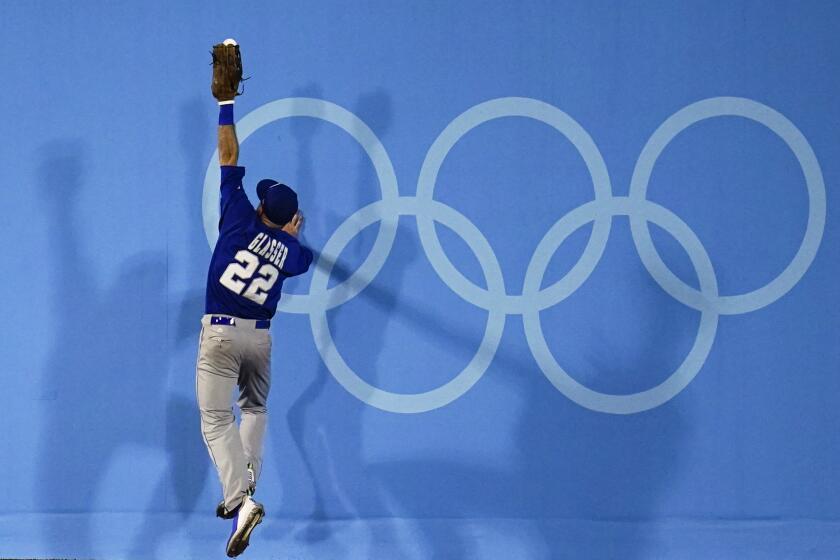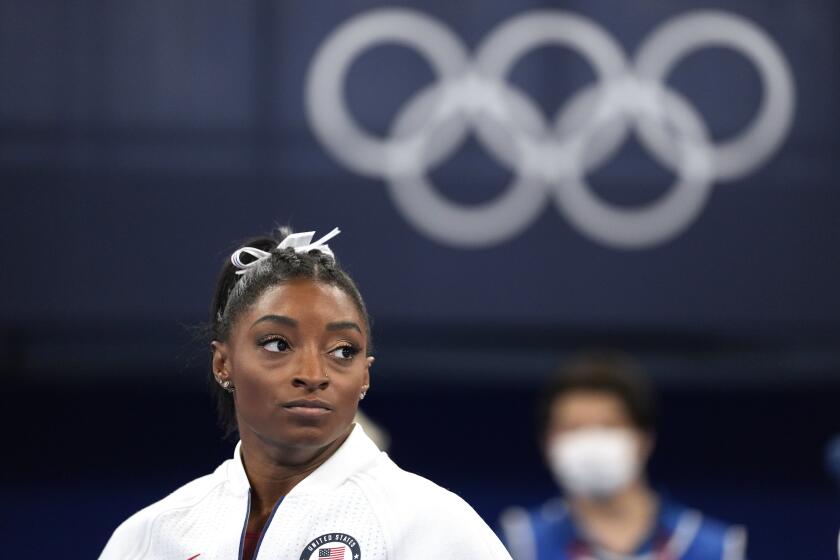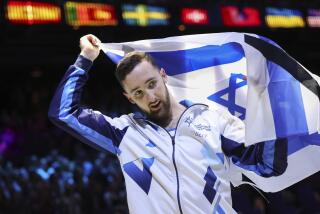Why Israel has hopes for a medal and something more in its Olympic baseball debut
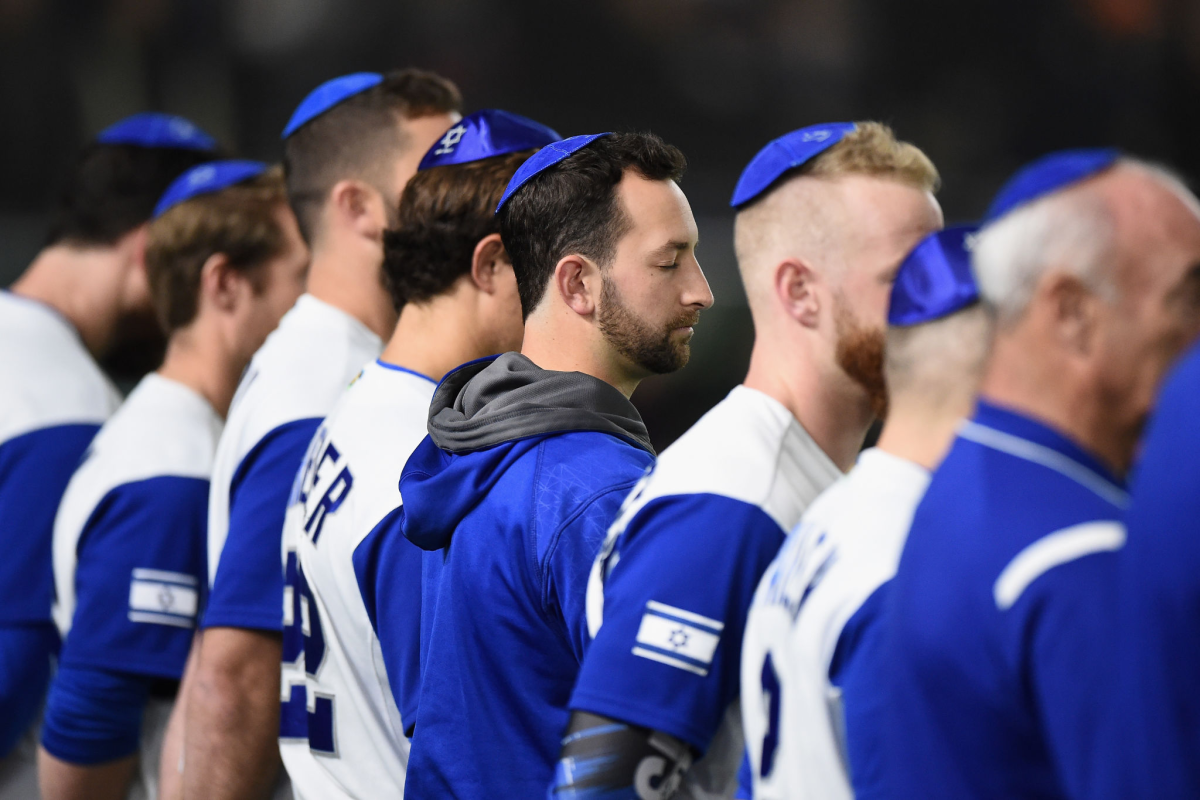
TOKYO — Shlomo Lipetz was on the first baseball team to represent Israel in an international event at Little League World Series preliminaries in Germany in 1989. He was 10. The Israelis were overmatched. In one game, they lost 51-0 to a Saudi Arabia team filled with Americans.
“It didn’t scar me enough to stop playing baseball,” Lipetz said Wednesday.
Lipetz spoke from the Olympic village, a reality nobody in the baseball world envisioned just a few years ago. On Thursday, 32 years after Israel’s harsh introduction to international baseball, Lipetz, a right-handed reliever, was part of one of the most unlikely breakthroughs at the Tokyo Games when Israel made its Olympic baseball debut against South Korea at Yokohama Baseball Stadium. South Korea rallied to win, 6-5.
After losing starting pitcher Jon Moscot to injury in the first inning, Israel lost its first Olympic baseball game, 6-5, to South Korea in 10 innings.
“It’s been amazing,” said Peter Kurz, Team Israel’s general manager. “It’s quite an achievement.”
The 24-member baseball team is Israel’s first Olympic ball team since the country’s soccer outfit qualified at the 1976 Montreal Games. The country has won just 10 medals in its history; none have been in a team sport.
Israel enters the six-team tournament as the 24th-ranked team in the world behind baseball afterthoughts Brazil, China, Spain, South Africa and France. The other five teams in the field rank in the top 10. But the Israelis have benefited from an infusion of talent in recent years, winning 20 of 24 games to become the first team to qualify for the tournament — besides host country Japan — in September 2019. Before that, Israel proved it could compete on the international stage when it advanced to the second round of the World Baseball Classic, beating out host South Korea in pool play.
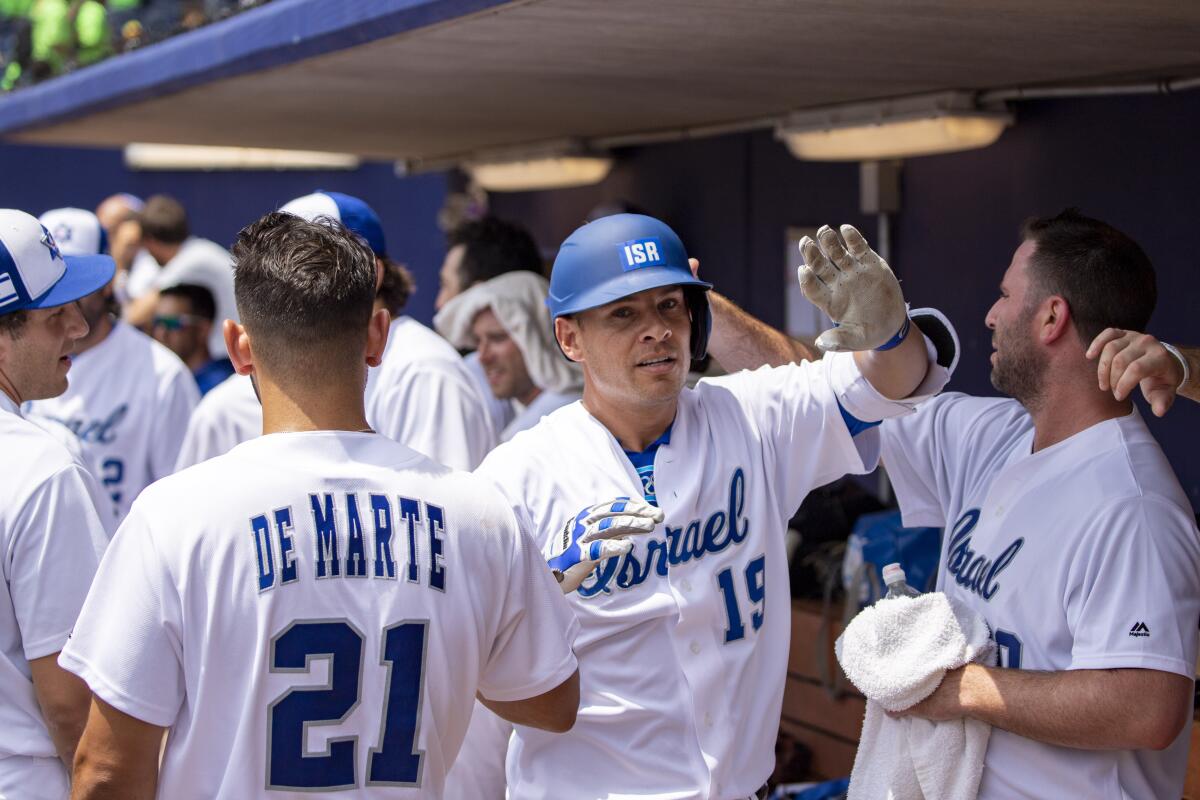
“Realistically, baseball will never become a mainstream sport in Israel. What we hope to get out of this is to continue the momentum.”
— Shlomo Lipetz, Israel pitcher
“I think we should be considered one of the world powers as well,” Team Israel manager Eric Holtz, a New York native, said. “We’ve proven that we deserve to be here. We will be ready to go against anybody that steps on the field against us. We’re not looking to be three-and-done and go home. We’re not going to be satisfied with that.”
The team hopes success in the tournament could lead to more than just an unexpected medal. The Israelis see the Olympics as an opportunity to boost baseball in the country, where the sport has been played for about 40 years.
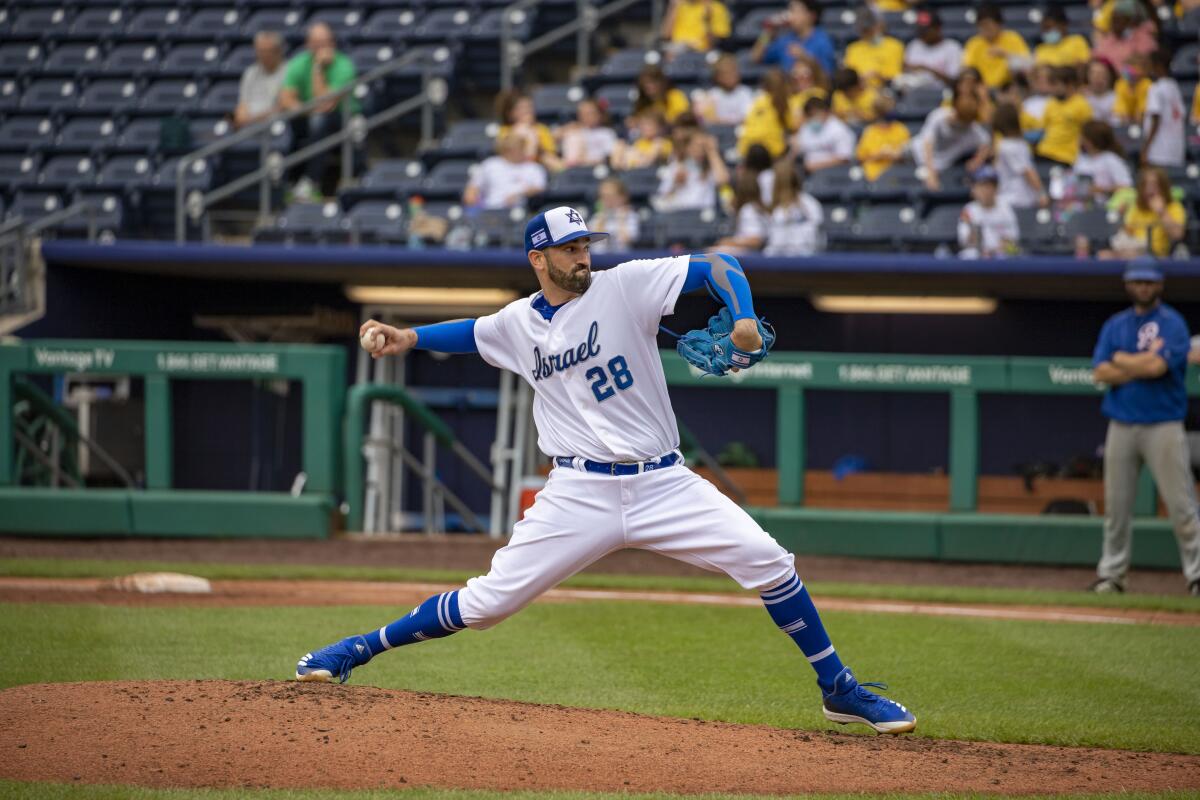
Somewhere between 1,000 and 1,500 people across the country actively participate. The only field in Israel with lights hosts the national team’s practices and the country’s five-team adult league games in Petach Tikva, a city outside Tel Aviv. Kurz said the plan is to build two more fields with fundraising done mostly in the United States.
“Realistically, baseball will never become a mainstream sport in Israel,” Lipetz said. “What we hope to get out of this is to continue the momentum.”
The roster set out to kindle the interest is a mishmash of backgrounds and baseball experience.
Lipetz is one of four Israeli natives on the team. The other 20 players hail from the United States. They were granted citizenship to represent Israel under the country’s Law of Return as the sons, grandsons or husbands of Jews.
U.S. gymnast Simone Biles pulls out of two events at the Tokyo Olympics because of mental health issues. Other athletes understand the struggle.
They include Ian Kinsler, a four-time major league all-star, and Danny Valencia, whose nine-year major league career ended in 2018. Both infielders came out of retirement last month to play a few games for the Long Island Ducks, an independent league team, in preparation for the Olympics.
Kinsler, 39, is an advisor for the San Diego Padres. Right-handed pitcher Josh Zeid is a rehab pitching coordinator and pitching coach for the Chicago Cubs. Left-hander Jeremy Bleich works in the Pittsburgh Pirates’ front office, and right-hander Alon Leichman is the pitching coach for the Seattle Mariners’ double-A affiliate.
Jon Moscot, Israel’s starting pitcher Thursday, last played affiliated baseball in 2016. Injuries forced the 29-year-old Los Angeles native to announce his retirement in 2019. He now works for Blast Motion, a Carlsbad-based company that provides motion analysis and performance insights to athletes.
Lipetz, meanwhile, is an Israeli baseball pioneer born and raised in Tel Aviv. He landed at UC San Diego for two seasons, rising to closer his senior year, before playing in the Israel Baseball League in 2007. The league lasted one season, prompting Lipetz to head to Mexico where he played for six months. His professional career ended there.
He then moved to New York City. He’s had a day job for 14 years while playing in semi-pro leagues in his spare time. Working from home during the pandemic, he was able to work out six days a week and play one semi-pro game every weekend in the months leading up to Tokyo. At 42, Lipetz will be the second-oldest Olympic baseball player ever.
“Playing for the national team is something that I’ve always used as a motivator with my day job, to wake up extra early, work out late and still maintain a full schedule during the day,” Lipetz said. “I have to try to satisfy a boss who probably thought he hired someone who’s going to play baseball for a year or two and 13 years later is going to play in the Olympics.”
Lipetz is still on payroll in Japan. He spends a few hours every day sending emails and jumping on conference calls from the Olympic village, where the baseball team has handed out baseballs and bats to other members of the Israeli delegation.
For most of the athletes, it’s the first time they’ve ever been exposed to the sport. The baseball team’s goal, whether it medals or not, is to change that, to make baseball a game Israelis aspire to play. The Olympics should help the cause. It’s a long way from 51-0.
More to Read
Go beyond the scoreboard
Get the latest on L.A.'s teams in the daily Sports Report newsletter.
You may occasionally receive promotional content from the Los Angeles Times.

